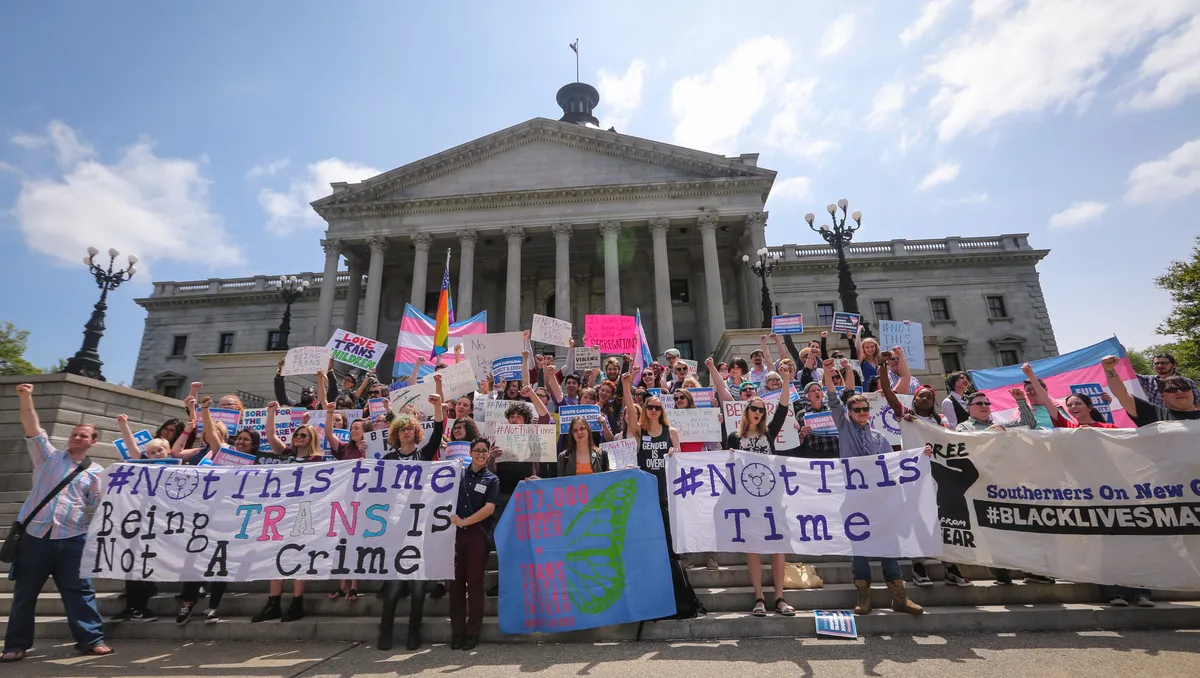Written by Devyani Chhetri
In its first week back in session, the South Carolina Statehouse has started brimming with activity again.
Gov. Henry McMaster unveiled his budget proposal on Jan. 5. Increasing the minimum teacher pay to $45,000, allocating $95 million for workforce tech scholarships, and investing $50 million to build and create training institutes at technical colleges to develop skilled workforce for manufacturing hubs like BMW in the Upstate and Scout Motors in the Midlands are some of McMaster’s agenda items in his plan to address rising needs of a growing state.
Meanwhile, House Republicans have begun the new legislative session with a crusade to ban gender-affirming healthcare for minors. A similar bill is yet to gain traction in the Senate.
The majority of the speakers— pediatricians, medical experts therapists, parents, advocates and transgender residents—arrived at a House subcommittee meeting on Jan. 9 to tell lawmakers about the dangers of taking away gender-affirming healthcare for transgender children. They came prepared with personal stories, binders and pages of widely accepted research illustrating the safety of puberty blockers and LGBTQ+ inclusive counseling, all to dissuade lawmakers from advancing a controversial anti-transgender bill.
But the lawmakers quickly advanced the bill.
Here’s more on what happened in the Statehouse’s first week back to work:
McMaster prioritizes economic development in new budget proposal
South Carolina exceeded its economic expectations, back to back, two years in a row. In 2023, the state had the highest population growth in the entire country.
McMaster said he wanted to bolster growth by investing more funds in technical schools and programs to add a trained workforce of almost 20,000 residents to cover the needs of manufacturers like BMW. He also wants to set aside $50 million to expand commercial airports in the state.
Last year, the SC Teacher Retention and Recruitment Taskforce made some key suggestions to address the teacher shortage. The task force asked policymakers to provide teachers with more funds for teaching supplies so that teachers weren’t paying for required materials out of their own pockets. Another suggestion included simplifying pay bands and extending the minimum salary schedule from 23 years of experience to 30. So more experienced teachers are likely to see pay raises if they have over 23 years of teaching experience.
McMaster also wants to spend $13.43 million for 175 new school resource officers (SROs) in public schools. There were 1091 SROs in FY 2023-2024. There’s also a looming crisis of a declining skilled workforce due to lower birth rates and lower enrollment in colleges and universities. Across the U.S., the college-age population is expected to decline by 15% in 2025. McMaster wants to spend $3 million on a study to investigate the current state of South Carolina’s colleges and universities. The Governor’s office told reporters on Jan. 5 that while enrollment had remained flourished at Clemson University and the University of South Carolina, other public offshoots like technical colleges saw a decline in enrollment, begging the question if some schools needed to be consolidated.



